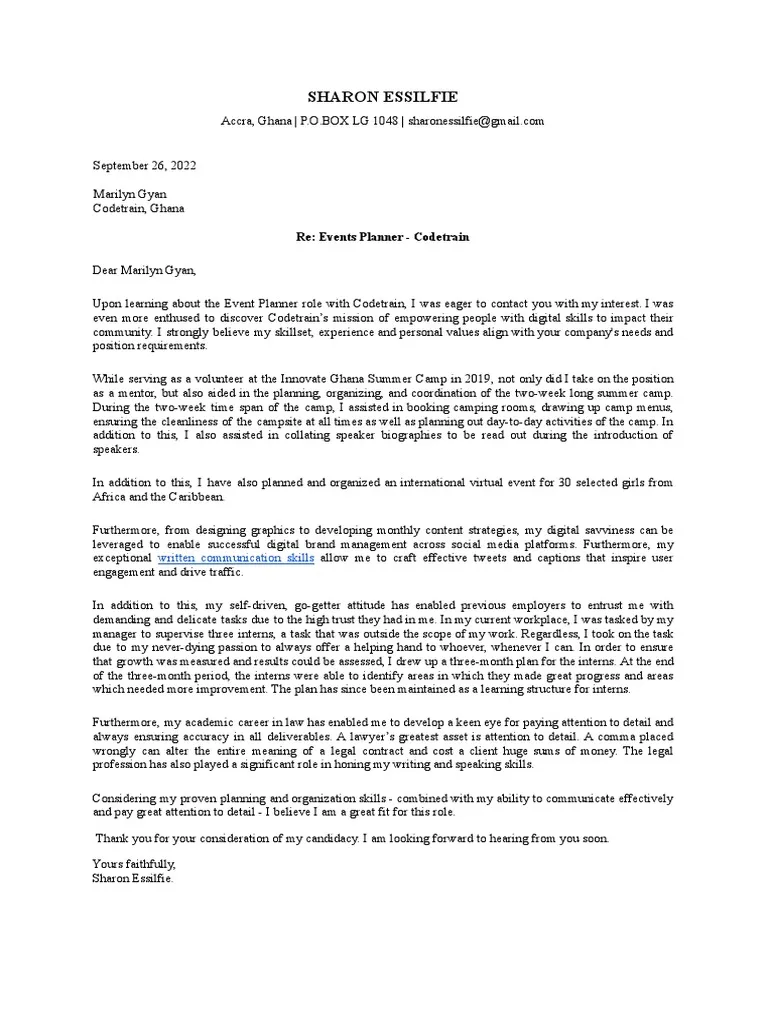Understanding the Purpose of an Events Cover Letter
An events cover letter is more than just a formality; it’s your first opportunity to make a strong impression on a potential employer. It serves as an introduction to your resume, providing context, personality, and a compelling narrative that highlights why you are the perfect fit for the role. It’s your chance to showcase your passion for event planning and your understanding of the industry. Unlike a resume, which is a factual listing of your skills and experience, a cover letter allows you to express your enthusiasm and explain how your qualifications align with the specific requirements of the job. This is a great opportunity to demonstrate your writing skills and attention to detail, both crucial in event management.
Key Components of a Compelling Events Cover Letter
A well-structured events cover letter comprises several key elements, each playing a vital role in convincing the hiring manager to read your resume and consider you for an interview. It should be concise, well-organized, and tailored to the specific job you are applying for. Begin with your contact information and the recipient’s details, followed by a captivating opening paragraph. The body should highlight your relevant skills and experience, quantify your achievements with data, demonstrate your passion, and tailor your letter to the job. Conclude with a strong closing paragraph and proofread meticulously before sending it. Always tailor each Events Cover Letter to the specific job to greatly increase your chances to get hired.
Your Contact Information and Recipient Details
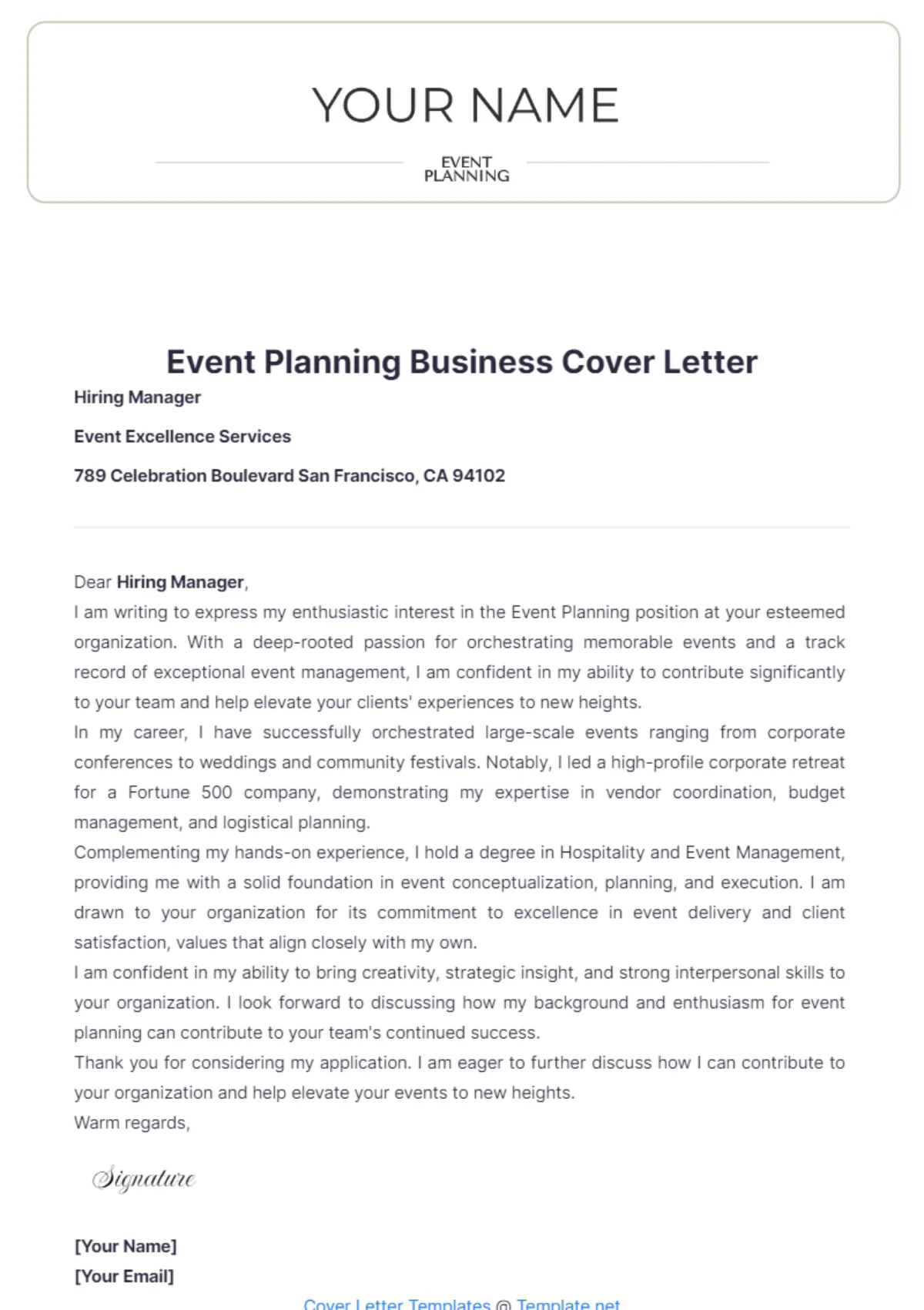
Start your cover letter by including your full name, address, phone number, and email address. Ensure your email address is professional. Following this, include the date and the hiring manager’s name, title, and the company’s address. If you are unsure of the hiring manager’s name, research the company’s website or LinkedIn to find it. Addressing the letter to a specific person makes it more personal and shows that you have taken the time to research the company and role. This attention to detail is a great first impression and speaks volumes about your organizational abilities.
Crafting a Strong Opening Paragraph
Your opening paragraph is your chance to grab the reader’s attention. State the position you are applying for and where you found the job posting. Briefly mention something that excites you about the role or the company. Consider using a hook that immediately grabs the reader’s interest. This could be a unique achievement, a relevant skill, or your passion for events. Avoid generic opening lines; instead, demonstrate your enthusiasm and provide a glimpse of why you are the ideal candidate. Make sure the opening reflects the tone of the company as well as the role you are applying for.
Highlighting Relevant Skills and Experience
The body of your cover letter should highlight your key skills and experience relevant to the job description. Focus on the requirements mentioned in the job posting and explain how your background aligns with them. Use action verbs to describe your accomplishments and responsibilities. Provide specific examples of your successes in event planning. If the job requires experience in vendor management, describe your experience in negotiating contracts, managing relationships, and ensuring successful event execution. If the role demands strong communication skills, provide specific instances where you effectively communicated with stakeholders, sponsors, and attendees.
Quantifying Achievements with Data
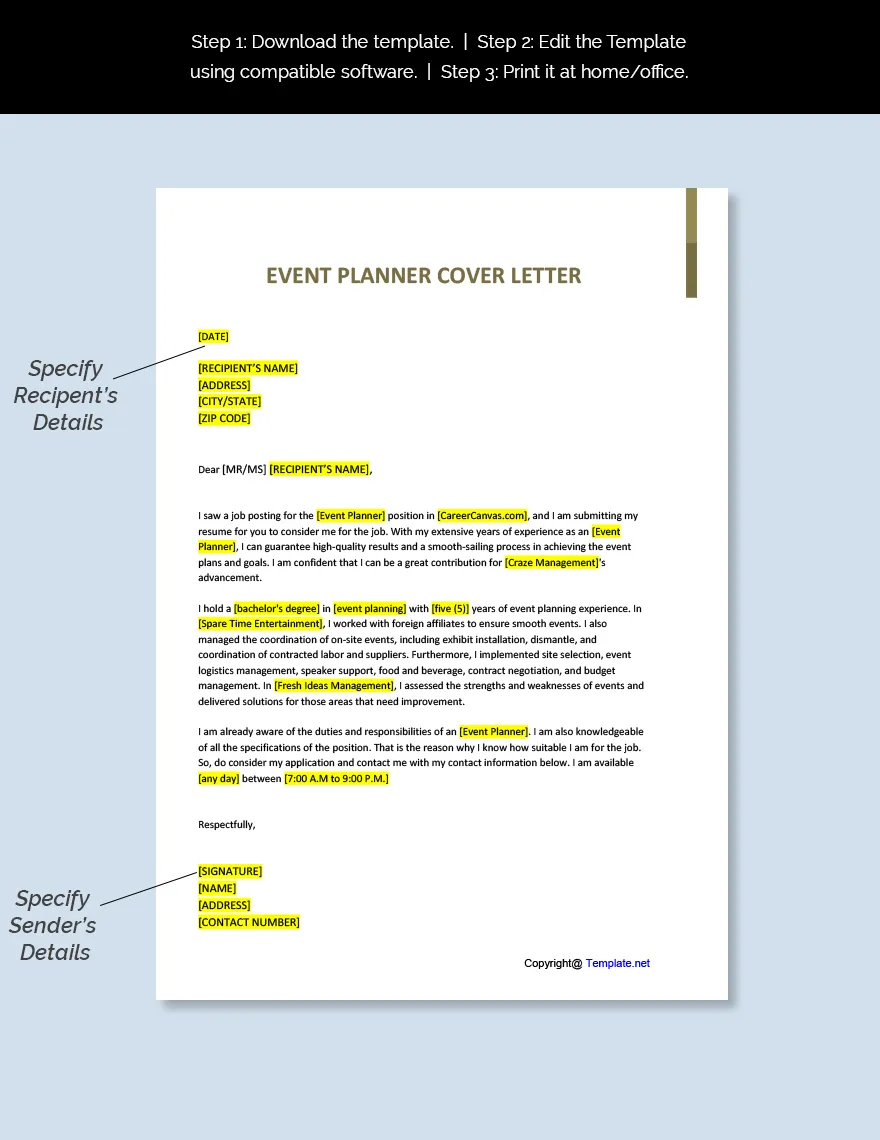
Whenever possible, quantify your achievements to demonstrate your impact. Instead of saying you ‘managed events’, state how many events you managed, their scale, and their success rates. For example, ‘Managed over 50 events annually, with an average attendance of 500+ attendees and a 15% increase in sponsorship revenue.’ Use numbers to show the results of your work, such as increased attendance, cost savings, or positive feedback from attendees. This data makes your claims more credible and illustrates your ability to deliver results, essential in the world of event planning.
Demonstrating Passion and Enthusiasm
Showcase your passion for events in your cover letter. Express your enthusiasm for event planning and explain what motivates you in this field. Mention any specific types of events that interest you, and explain why. If you have a deep understanding of the industry, share your insights. Showing genuine enthusiasm and a love for the field will make you stand out from other candidates. Employers seek people who are passionate about their work because it often translates to a greater commitment and a willingness to go above and beyond.
Tailoring Your Letter to the Specific Job
Avoid using a generic cover letter for every job application. Customization is key. Carefully review the job description and tailor your cover letter to match its requirements. This involves highlighting specific skills and experiences that align with the job requirements. Demonstrate your understanding of the company’s mission, values, and the role. Mention any events you have attended or have admired. Tailoring your cover letter shows that you are genuinely interested in the position and the company, increasing the likelihood of getting an interview. It also makes you seem like a great fit from the start.
Researching the Company and Role
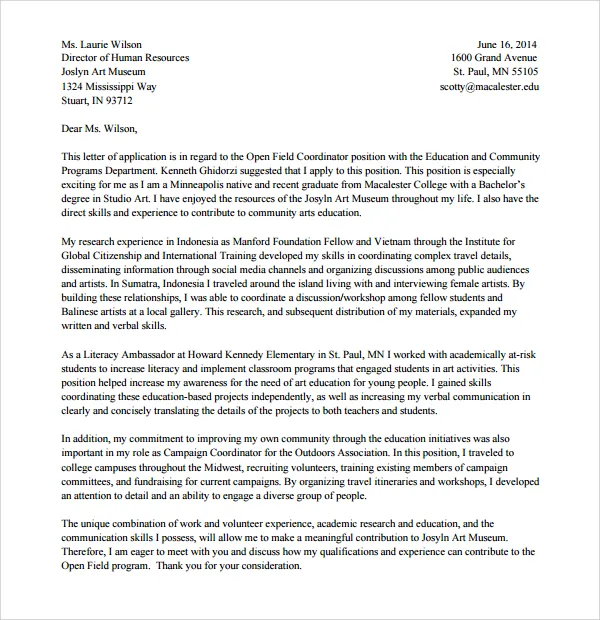
Before writing your cover letter, research the company and the specific role. Explore their website, social media profiles, and any news articles about the company. Understand their values, culture, and the types of events they organize. This research will help you tailor your cover letter to demonstrate your understanding of the company and your interest in the role. Show that you’ve done your homework by referencing the company’s events, achievements, or mission. This research will also help you to identify key skills or requirements that the hiring manager values.
Adapting Your Language and Tone
Adjust the language and tone of your cover letter to match the company’s brand and culture. For a more formal company, maintain a professional tone. For a more creative or casual environment, you might adopt a slightly more relaxed style. The tone should always be appropriate for the position. If the company is known for its innovative events, you might infuse your letter with more creativity. The tone should be respectful, enthusiastic, and reflects your personality. Pay attention to the words you use and the way you structure your sentences. This helps build a connection with the hiring manager.
Writing a Powerful Closing Paragraph
Your closing paragraph should reiterate your interest in the position and thank the hiring manager for their time and consideration. Reiterate your enthusiasm for the role, summarizing your key qualifications and why you are a great fit. Include a call to action, such as stating your availability for an interview and how you can be contacted. End with a professional closing, such as ‘Sincerely’ or ‘Best regards,’ followed by your typed name. Ensure the closing paragraph leaves a positive impression. Make sure you leave them with a compelling reason to call you for an interview.
Proofreading and Editing Your Cover Letter
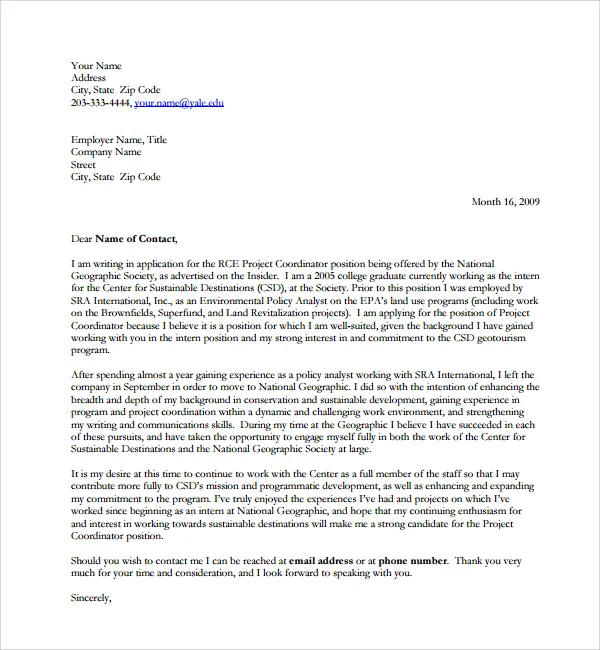
Before submitting your events cover letter, proofread and edit it meticulously. Errors in grammar, spelling, and punctuation can undermine your credibility. Carefully check for any typos or formatting inconsistencies. Use a grammar checker and ask a friend or colleague to review your cover letter as well. Ensure the layout is neat, and the font is easy to read. Proper proofreading shows attention to detail, which is a crucial skill in event planning. Take the time to ensure the cover letter is a perfect reflection of your professionalism and abilities.
Common Mistakes to Avoid
Avoid common mistakes that can hinder your application. Generic cover letters are a major turnoff. Do not use the same cover letter for different jobs. Neglecting to tailor the cover letter to the specific job posting shows a lack of interest and effort. Avoid negative language, such as complaining about previous employers or being overly critical. Avoid exaggerating or lying about your qualifications. Also, avoid long, rambling paragraphs or overly complicated language. Keep it clear, concise, and focused on your value to the employer.
Formatting and Presentation Tips
Present your cover letter professionally. Use a standard font, such as Times New Roman, Arial, or Calibri. Keep the font size between 10 and 12 points for readability. Use clear and concise language, and break up large blocks of text with short paragraphs. Use bullet points to list skills or achievements to improve readability. The layout should be clean, with proper margins and spacing. A well-formatted cover letter demonstrates professionalism and attention to detail, key qualities valued by employers.
Ensuring Professionalism and Clarity
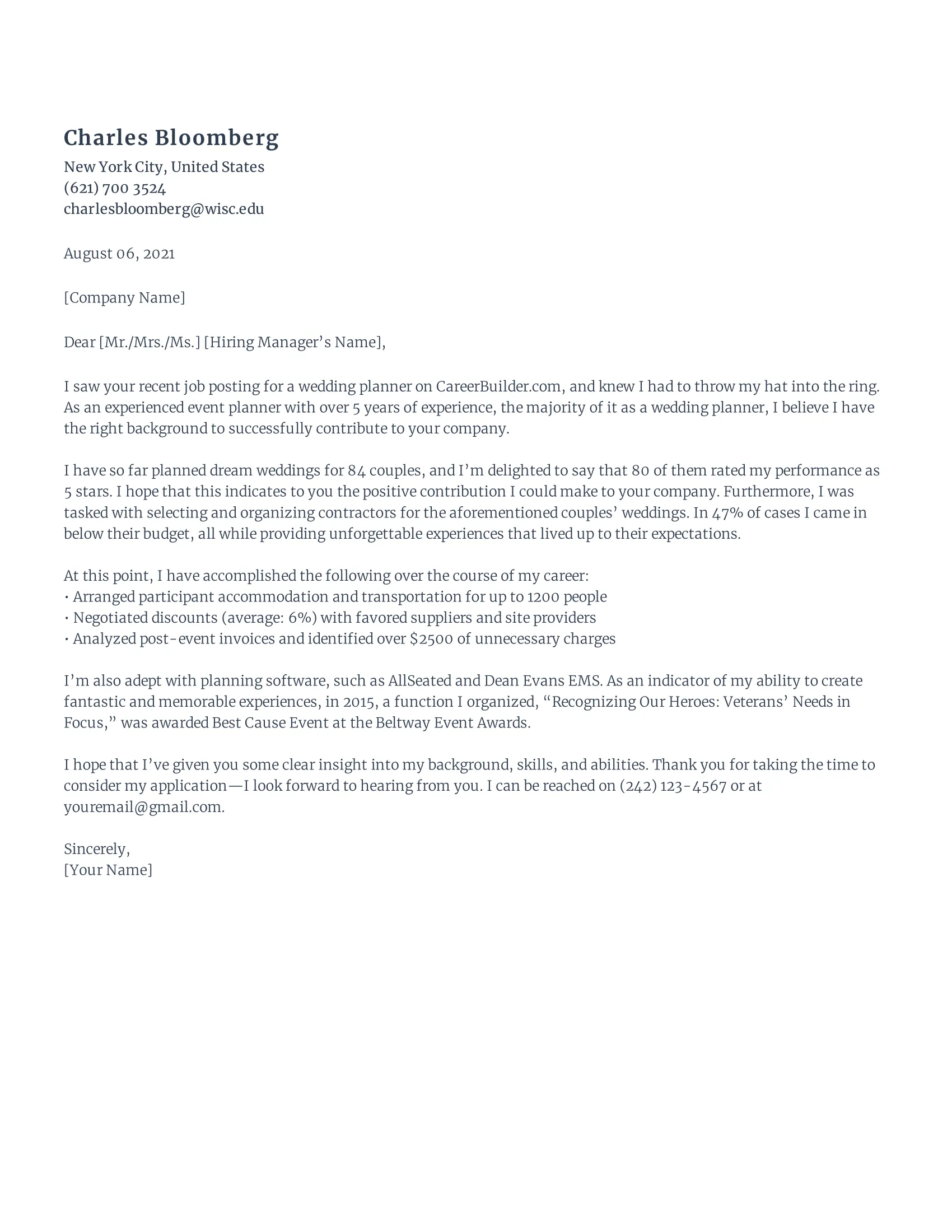
Ensure your cover letter is professional and clear. Use formal language and avoid slang or jargon. Maintain a positive and enthusiastic tone throughout. Be concise and get to the point quickly. The hiring manager should easily understand your skills and experience. Proofread carefully for any errors in grammar, spelling, or punctuation. The goal is to present yourself in the best possible light, showcasing your ability to communicate effectively and professionally. Always keep your writing clear and easy to read.
Follow-Up Strategies
After submitting your events cover letter, consider following up with the hiring manager. Send a polite email a week or two after submitting your application to express your continued interest. Briefly reiterate your qualifications and your enthusiasm for the role. Mention any new achievements or information. If the job posting provides contact information, it’s an excellent opportunity to demonstrate initiative. Following up shows that you are serious about the opportunity and can help your application stand out. Maintain professionalism and respect the hiring manager’s time.
